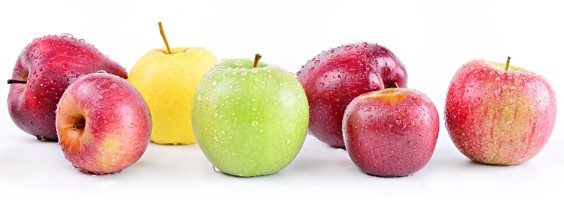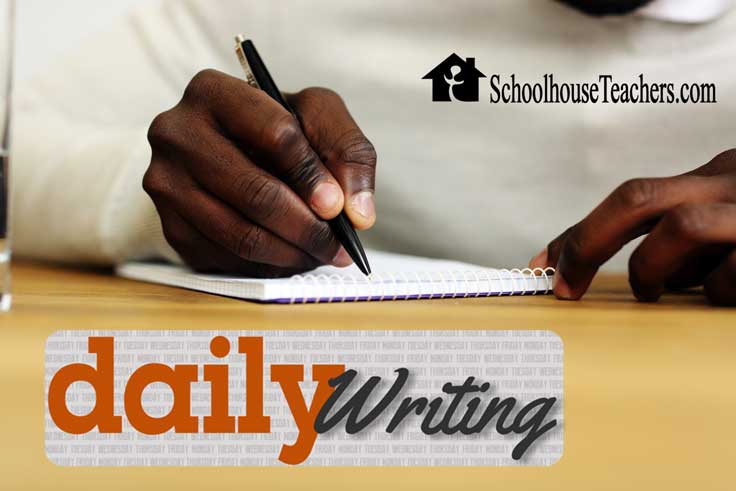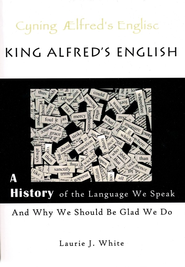Do you hear that thunder? It’s the crash of schoolbooks all over the country slamming shut for the summer.
As a parent, you want your children to continue using their reading skills. You know there are so many wonderful books they would enjoy reading now that it is summer and the distractions are fewer. Treasures await them. Do you have a plan to make it happen?
If not, you can use mine.
Use a Topic or Theme
A summer reading list is more fun for your tweens and teens if it’s compiled around a topic. It feels as though there is some purpose to reading this way, and all the time spent with the books feels less like work when your teen is enthused about the subject matter.
If the idea of topics falls flat for you, try revolving your list around a specific theme such as revenge or sacrifice.
 What follows are four examples of topics and some engaging books that fit those topics. These lists are not meant to be taken as complete lists your teen must finish this summer; they are simply ideas of books you could use for those topics. Feel free to use these or to develop your own. More information about many of the books can be found at cliffsnotes.com, sparknotes.com, novelguide.com, or Focus on the Family’s helpful pluggedin.com.
What follows are four examples of topics and some engaging books that fit those topics. These lists are not meant to be taken as complete lists your teen must finish this summer; they are simply ideas of books you could use for those topics. Feel free to use these or to develop your own. More information about many of the books can be found at cliffsnotes.com, sparknotes.com, novelguide.com, or Focus on the Family’s helpful pluggedin.com.
Stories that happen during a school break, summer, or vacation
• “The Lottery” by Shirley Jackson. Here’s a cautionary tale about wrong-headed thinking with a surprise ending. Take it figuratively, not literally.
• And Then there Were None by Agatha Christie. This murder mystery situated on an island in a storm examines the meaning of justice and vengeance.
• Lord of the Flies by William Golding. Will your teens agree with Golding’s ideas of human nature as they read this disturbing tale about young schoolchildren alone on an island?
• Three Men in a Boat by Jerome K. Jerome. Want something amusing? Here’s a British tongue-in-cheek story about, well, three grown men in a boat.
• To Kill a Mockingbird by Harper Lee. Part story, part memoir, this moving book is about friendship, prejudice, and growing up. Enjoy the wonderful characters.
• The Blue Star by Tony Earley. Do the choices we make in high school affect our lives? Read this poignant story beginning in the summer of 1941 about young love, friends, and war to find out.
• A Midsummer Night’s Dream by William Shakespeare. Get ready for this play packed with confused, switched, and hidden identities.
Stories of shipwreck and islands
• The Coral Island by R. M. Ballantyne. This is one of the first books written for boys and about boys, with one of the three shipwrecked boys as the narrator.
• Lord of the Flies by William Golding. When their plane crashes on a deserted island, will these middle school boys and younger survive the island and themselves?
• Robinson Crusoe by Daniel Defoe. How will this rebellious man survive hunger, loneliness, cannibals, and twenty-seven years on an island? And when he gets the chance to leave, will he return?
• Peter Pan by Sir James Barrie. An island. A bloodthirsty pirate captain. A hungry crocodile. A boy who refuses to grow up. What’s not to like?
• The Swiss Family Robinson by Johann David Wyss. Here’s an 1812 story of a family shipwrecked in the East Indies.
• Tarzan of the Apes by Edgar Rice Burroughs. When a young, aristocratic couple is shipwrecked on the coast of a dark jungle, what will happen to their infant son? Will he ever know who he really is?
• Adventures of Huckleberry Finn by Mark Twain. Tom Sawyer’s friend Huck is kidnapped and held on an island. When he flees, he brings a runaway slave with him. What will happen as they float on their raft farther and farther down river into slave territory?
Stories of interesting characters
• The Scarlet Letter by Nathaniel Hawthorne. Can this young woman recover from a scandal of her own making? Does she even want to?
• Our Town by Thornton Wilder. This imaginative and poignant play is populated with dead characters looking back on their lives. What will they find?
• Macbeth by William Shakespeare. A troubled man gives in to his wife’s plan to kill the king.
• The King’s Fifth by Scott O’Dell. The king claimed twenty percent (one fifth) of all gold and treasure found during the time of the Spanish Conquistadors. What will happen to this teen held in prison for not handing over the king’s cut? And why is he refusing to do so?
• Holes by Louis Sachar. An innocent teen is sent, seemingly by a family curse, to an alleged reform camp. What he finds there is surprising.
• A biography of your teen’s choice. Biographies are opportunities to evaluate what qualities the person had that enabled him or her to overcome such great odds.
Stories of Black and white racial tension
• To Kill a Mockingbird by Harper Lee. The racial tensions of these interest-filled summers are always in the background and sometimes thrust into the foreground.
• Kingsblood Royal by Sinclair Lewis. When a supposedly white man finds he has Black ancestry, he lives in fear of being found out and of being ostracized by his wife and community.
• I Know Why the Caged Bird Sings by Maya Angelou. The world recently lost this famous woman, so it’s a fitting time to read her moving memoir of her growing up years.
• Warriors Don’t Cry by Melba Patillo Beals. Remember the troubled racial integration of the southern schools in the 1950s? This woman does because she was a Black student in the thick of it, enduring the integration into a large, white high school in Little Rock, Arkansas.
• Adventures of Huckleberry Finn by Mark Twain. Here you’ll find a runaway boy and slave wrestling with racial issues as they journey down river into slave territory.
• Pudd’nhead Wilson by Mark Twain. What happens when a white-looking slave woman switches her baby with her master’s baby?
More ideas
As you can see, you can develop a summer reading list around almost any topic, idea, or theme. You know your teens best, so you have the inside scoop to create a list around their interests.
The ideas above have been mainly fiction, but perhaps your tween or teen would relish reading nonfiction books about how machines work, the history of karate, the science of food, people who walked or sailed the globe, or explorers who got lost.
Make it fun for your kids by rewarding them for each book they finish reading. That’s a nice incentive used by many libraries across the nation each summer, and it will give your kids something pleasurable to aim for.
Would your teens enjoy reading these books with friends? Think about creating a small group for lively discussions or for acting out scenes.
Do you have teens that balk at reading? You might like to take turns reading a book to each other, always stopping at an exciting part so there will be a compelling reason to return to the book soon. Or get an audio version of the book.
Consider reading some of the books on the list yourself. This way, you can have an intelligent conversation about the book afterward, asking questions about why they think characters do certain things or how the author makes you cheer for the protagonist. You’ll also be able to catch events in the books that run contrary to your worldview and then talk about them with your teens.
These golden summer days are precious, and you don’t want to waste them fighting with your teens over a reading list. Have fun developing your list with your children!
Yours for more vibrant writing and literature experiences,

Teachers, connect with Sharon on Facebook or Pinterest!
 Are your writers struggling? Do you wish you could figure out why your children won’t write? Would you love to have a peaceful writing class experience?
Are your writers struggling? Do you wish you could figure out why your children won’t write? Would you love to have a peaceful writing class experience?
Help your struggling writers—and you!—by identifying five hurdles to writing. Then learn practical actions you can take against those hurdles.
This article by me in The Old Schoolhouse magazine is also loaded with links to other helpful posts that will give you and your writers some welcome relief.
Click here to drain some of the tension from your writing class
Frustrated that your students don’t finish an essay or don’t know the steps to complete one? Worry no more! Click here for my latest article in The Informer about a super-practical writing schedule you WILL use!











